Ten UW–Madison professionals honored with 2011 Academic Staff Excellence Awards
Ten UW–Madison professionals have been honored with the 2011 Academic Staff Excellence Awards in recognition of their achievements in leadership, public service, research, teaching and overall excellence.
Winners will be recognized by the Academic Staff Assembly on April 11 and will attend a reception with Chancellor Biddy Martin later in the month.
This year, 10 awards were given in nine categories; there were two winners of the Ann Wallace Career Achievement Award. All awards carry a stipend.
“I want to congratulate and extend my appreciation to the winners, and to all our academic staff members at UW–Madison, for their talent, commitment and service to the university,” Martin says. “Our academic staff is critical to the quality of learning, research and operations at the university.”
The winners are:
Emuye Asfaw
Administrative Officer
Academic Personnel Office
Ann Wallace Career Achievement Award
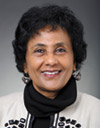
Asfaw
Many on the academic staff over the years likely didn’t realize they should send thanks in Asfaw’s direction, as she serves a critical role for just about every member of the academic staff. Among the many duties she has, Asfaw is responsible for reviewing requests for academic staff base salary adjustments — something she approaches with a dedication to fairness, honesty and respect.
In a 36-year career at UW–Madison – five years in the Office of the Registrar and the rest in the Office of Human Resources — Asfaw has guided academic staff on issues of salary, equity, titles and jobs.
She’s done it with a strong sense of fairness and desire to do the right thing for people, say her nominators.
“She always has the interests of the university and its employees in mind and, on occasions where there has been room for conflict between the two, she has been scrupulously fair in resolving the issues — never hesitating to advocate for the academic staff member when appropriate,” says Stephen R. Lund, director of the Academic Personnel Office.
Maureen Noonan Bischof
Assistant Vice Provost
Office of the Provost
Chancellor’s Award for Excellence in Service to the University
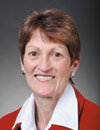
Bischoff
When Julie Underwood became dean of the School of Education, she recalls that Bischof, known on campus as “Mo,” went out of her way to give Underwood a one-on-one orientation to the job, offering names, resources, contacts and context.
“For the next two years, whenever I didn’t know…how something worked or where something was on campus, I called Mo,” Underwood says.
Going the extra mile – and exuding good will while she does it – has been a hallmark of Bischof’s 21 years at UW–Madison, says Bruno Browning, director of Learning Support Services in the College of Letters & Science. She earned this award for demonstrated outstanding long-term personal commitment to the greater university community with her “cheerful whirlwind of virtuosity” and uncanny ability to network and navigate campus to get things done, her nominators say.
“She cares deeply about this institution, and all her work reflects her desire to improve what we do here and help out in any way she can,” says Eden Inoway-Ronnie, chief of staff in the Office of the Provost.
Charles G. Fry
Director
Magnetic Resonance Facility, College of Letters & Science, Chemistry
Chancellor’s Award for Excellence in Research: Critical Research Support
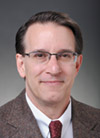
Fry
“When Charlie speaks up, people listen. When Charlie leads, people follow.”
So says James C. Weisshaar, professor and chair of the chemistry department. Weisshaar’s colleagues in the chemistry department say Fry brought their facilities forward by obtaining and maintaining the highest-quality equipment.
Fry, in 18 years as director of the facility, has provided extensive research support and collaboration to numerous research groups in the department, the Madison area and beyond. He is also leading a major expansion in the educational mission of the facility. Large numbers of undergraduate students will experience significantly improved research-learning experiences using new state-of-the-art instrumentation Fry has acquired this year.
His calm demeanor, work ethic, respect for others and persistence make him a role model for younger staff members, colleagues say.
“There is not a single nuclear magnetic resonance staff scientist in the world I have met that I would trade for Charlie,” says John F. Berry, assistant professor of chemistry.
His calm demeanor, work ethic, respect for others and persistence make him a role model for younger staff members, colleagues say.
“There is not a single nuclear magnetic resonance staff scientist in the world I have met that I would trade for Charlie,” says John F. Berry, assistant professor of chemistry.
Paul Hanson
Scientist and Research Professor
College of Letters & Science
Center for Limnology
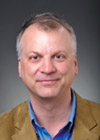
Hanson
Chancellor’s Award for Excellence in Research: Independent Investigator
Hanson started at the Center for Limnology in 1992 as the “IT guy,” but soon found himself immersed in the science, pursuing a doctoral degree in the subject.
His research has blended classical training in freshwater science with a strong background in information technology, computing and quantitative methods.
Along the way, he’s become an international pioneer of an information-driven approach to freshwater science, developing technology for measuring lake physics, chemistry and water quality. His systems are now deployed on lakes around Wisconsin and across the world, and he’s pushing ahead with new ways of analyzing data generated by networks of sensors in lake water.
“Hanson has created one of the world’s most successful ecological research networks while training many undergraduate and graduate students,” says Stephen R. Carpenter, director of the Center for Limnology.
Hanson also manages a group of interdisciplinary collaborators who are using cutting-edge tools to tackle emerging issues of freshwater science and organizes a campus network of researchers on Madison lakes.
Carla Love
Distinguished Lecturer
College of Letters & Science, German
Ann Wallace Career Achievement Award
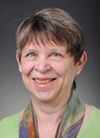
Love
Chances are that anyone who studied German at UW–Madison in the last 30 years was influenced by Love’s inspired — and inspiring — teaching. Her contributions as one of the German department’s top classroom teachers have been marked by skillful development of course materials; supervising and mentoring graduate students; dedicated service at the department, college and university levels; and presenting and publishing in her field.
But not only has Love influenced an entire generation of UW–Madison students in German, “Dr. Love has invested an enormous amount of her time, intelligence and energy on behalf of all academic staff and to the benefit of the whole campus,” writes Sabine Gross, German department chair.
Love has provided leadership on behalf of academic staff, serving on and leading campus-level governance committees. There, she helped develop policies to protect and enhance the rights of academic staff, and worked to strengthen their role in shared governance and in carrying out the mission of the university.
Kay Reuter-Krohn
Associate Director
Division of University Housing
Wisconsin Alumni Association Award for Excellence in Leadership: Individual Unit Level
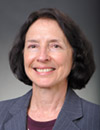
Reuter-Krohn
In the nearly 30 years that Reuter-Krohn has spent in the Division of University Housing, she’s credited with enriching the lives of thousands of students with generous, kind and insightful leadership and by genuinely caring about the students being served.
“Her openness to trying new things certainly set a tone within residential life that encouraged staff to push boundaries and not settle for business as usual,” says Kevin Helmkamp, associate dean of students.
During her tenure in Housing, Reuter-Krohn has nurtured a philosophical shift encouraging collaboration and partnerships with campus colleagues that helped create living and learning environments for students. She has worked to forge partnerships with faculty across campus to develop many residential learning communities, which have been sustained for more than 15 years, with new ones being developed for the future.
“Phenomenal changes have occurred in our program during the past two decades,” says Paul Evans, director of University Housing. “It is truly the result of her guidance that our innovative residential programs and services receive high praise from students and staff.”
Nete Schmidt
Senior Lecturer
College of Letters & Science
Scandinavian Studies
Chancellor’s Hilldale Award for Excellence in Teaching
The superlatives flow in reviews from Schmidt’s students.
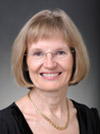
Schmidt
“One of the best classes I’ve ever taken,” writes one. “Nete is my favorite professor here,” says another. “It is teachers like Nete who make UW–Madison an exceptional institution,” writes student Jenna Mertz.
During Schmidt’s 13 years at UW–Madison, she is credited with not only increasing the number of students learning Danish, but also strengthening the department overall through courses taught in English.
Schmidt is known as a talented, dedicated, popular and inventive teacher; she created a class in Scandinavian crime fiction based on the popularity of Stieg Larsson’s “The Girl with the Dragon Tattoo.” She has also been a leader in using technology in the classroom in new ways, such as encouraging students to be instant-message pen pals with native speakers of Danish.
“Her primary goal is to challenge the students and make them think — about themselves, about the world, about literature, culture and language,” says Kirsten Wolf, chair of the Department of Scandinavian Studies.
Bette Sheehan
Senior Administrative Program Specialist
School of Medicine and Public Health
Martha Casey Award for Dedication to Excellence
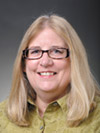
Sheehan
Grants are the lifeblood of UW–Madison’s McArdle Laboratory for Cancer Research, considered critical to the research, teaching and service missions of the laboratory. Sheehan is the guiding force in managing the submission and reporting for the laboratory’s $18 million in grants each year.
“It is in large part because of Bette’s knowledge, effectiveness and dedication that our department is able to submit a large number of grant applications each year,” says James Shull, director of the McArdle Laboratory.
Sheehan worked at the McArdle Laboratory as an undergraduate and joined the staff full-time in 1979.
In addition to assembling the grants and their progress reports, Sheehan coordinates the Cancer Biology graduate program, organizing the application process and helping the accepted graduate students find their footing in Madison.
“She is the unsung hero not because she did one extraordinary thing, but because she does so many small things extraordinarily,” says Paul F. Lambert, professor of oncology.
Linda Sullivan
Clinical Instructor
School of Veterinary Medicine
Wisconsin Alumni Association Award for Excellence in Leadership: College
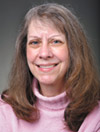
Sullivan
As a member of the School of Veterinary Medicine’s charter class, Sullivan has had the opportunity to play a part in building the school throughout the years.
In that time, she went from student to a leader in teaching, student services and contributions to the Wisconsin Idea. Her colleagues credit her with an ability to build consensus with grace, compassion, humility and tireless persistence.
In addition to coordinating laboratory instruction in a range of courses and leading an overhaul of the school’s curriculum, Sullivan has inspired a generation of veterinary medicine students to engage in lifelong learning and community service.
She organizes the annual Dog Jog to raise money for humane societies and coordinates Pet Pals, a canine therapy program serving children and families at the American Family Children’s Hospital.
“Few people can make a lasting impression on your education that reaches beyond the classes he or she has taught and influences the way you view your entire experience at an institution,” says current student Ewan Wolff. “Dr. Sullivan is one of these teachers.”
Linda Tuchman-Ginsberg
Outreach Program Manager III
Graduate School, Waisman Center
Robert and Caroll Heideman Award for Excellence in Public Service and Outreach
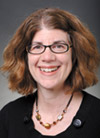
Tuchman-Ginsberg
Tuchman-Ginsberg has made it her mission to use her position on the academic staff to strengthen the state’s communities by helping young children, including those with disabilities, and their families through early intervention, care and education, mental health, parental education and family support.
As director of early childhood professional development within the Waisman Center, where she’s worked since 1982, Tuchman-Ginsberg has been involved in providing direct service to children, teaching, training and being part of early intervention research and evaluation.
“Her work is a clear example that demonstrates how a single member of the academic staff can contribute in meaningful ways to assist the university to meet its public service and outreach missions,” says Marsha Mailick Seltzer, director of the Waisman Center.
She recently developed a continuing education certificate program in infant, early childhood and family mental health to increase the professional capacity to reduce the number of at-risk children in Wisconsin.
“Linda is the epitome of the Wisconsin Idea in that her efforts are creating… ongoing enhancements in the cultural and social life of the state,” say fellows in the certificate program.




